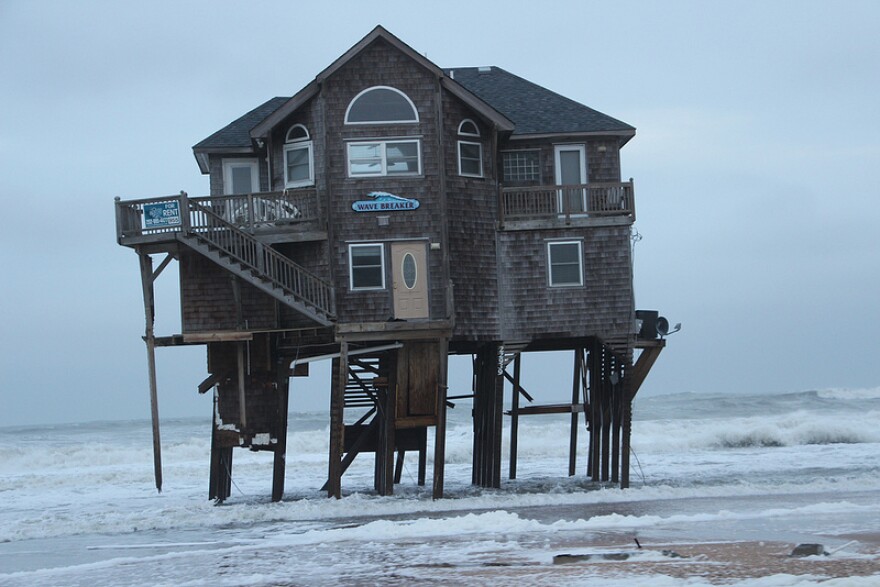The group that implements rules along the North Carolina coast has decided to shrink the scope of a study on sea level rise.
The Coastal Resources Commission had been considering a study of the effects of sea level rise over the next 100 years. At their meeting Thursday they decided to limit that study to just 30 years, along with updates every five years.
The commission thought the study would have more weight if it were more limited.
"That it would be more credible if it was focused on a 30-year time frame, " said Matt Slagel, who works with the state's Division of Coastal Management, alongside the CRC.
"Because a lot of the other rules that the commission deals with are based on 30 years. And they also noted that 30 years is the typical lifetime of a mortgage," said Slagel.
Bob Emory is the one commission member who dissented on the 30 year plan, hoping to leave it at 100 years. He said a longer study would have been more consistent with the state's original sea level forecast in 2010. along with the scope of other sea-level studies.
"I thought it would also create an opportunity for the data that's generated from our study to play a bigger role in the whole national and global discussion about sea level rise," said Emory.
Emory did acknowledge the value of a 30 year study, saying the data will likely be more accurate because there is less margin for error.
"I think the information we get when we look at 30 years has some real good uses," said Emory. "And if, in 10 years from now, we decided we need to take a longer look out, we can always do it then."
The state currently has a moratorium on the consideration of sea level rise in policy making until 2016. The new forecast is due next March.








